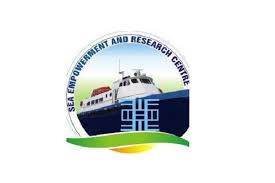The Sea Empowerment and Research Centre (SEREC) has called on the Federal Government to introduce taxes on unreturned and dilapidated containers at Nigerian ports, citing the move as essential for decongestion, environmental safety, and revenue generation.
Mr Eugene Nweke, Head Researcher at SEREC, made the appeal during a news conference on Monday in Abuja.
Nweke stated that taxing unreturned containers aligns with global shipping standards and could help mitigate the issue of container dumping at ports.
“Today, shipping companies charge Nigerian shippers an average of ₦10,000 per day for demurrage after the third day. Several countries, including Germany, France, the UK, and the United States, already impose detention fees or demurrage charges for unreturned containers,” he said.
He noted that if Nigeria were to adopt a similar policy, significant revenue could be generated, which could then be reinvested in port revitalisation, modernisation, and maintenance.
“Imagine if the government places a demurrage tax on a percentage basis for every unreturned empty container—how much revenue would be generated from that window alone?” he asked.
Nweke warned that without the enforcement of such policies, Nigeria would continue to suffer from container congestion and the accompanying financial and environmental consequences.
He pointed out that abandoned and unseaworthy containers not only create port congestion but also pose serious environmental and health hazards.
“To mitigate these, it is reasonable for Nigeria to consider implementing taxes and fees to encourage the prompt return of empty containers and reduce the financial burden on shipping lines,” he added.
SEREC proposed the establishment of a strategic container return system to be jointly managed by the Nigerian Shippers’ Council (NSC), Nigerian Ports Authority (NPA), and other relevant agencies.
Nweke also urged Nigerian businesses to increase exports to balance the flow of containers and advised the government to invest in improved port infrastructure and management systems.
He further recommended enhanced tracking and return logistics as part of an effective national container return strategy to reduce storage costs and improve efficiency.
(NAN)


